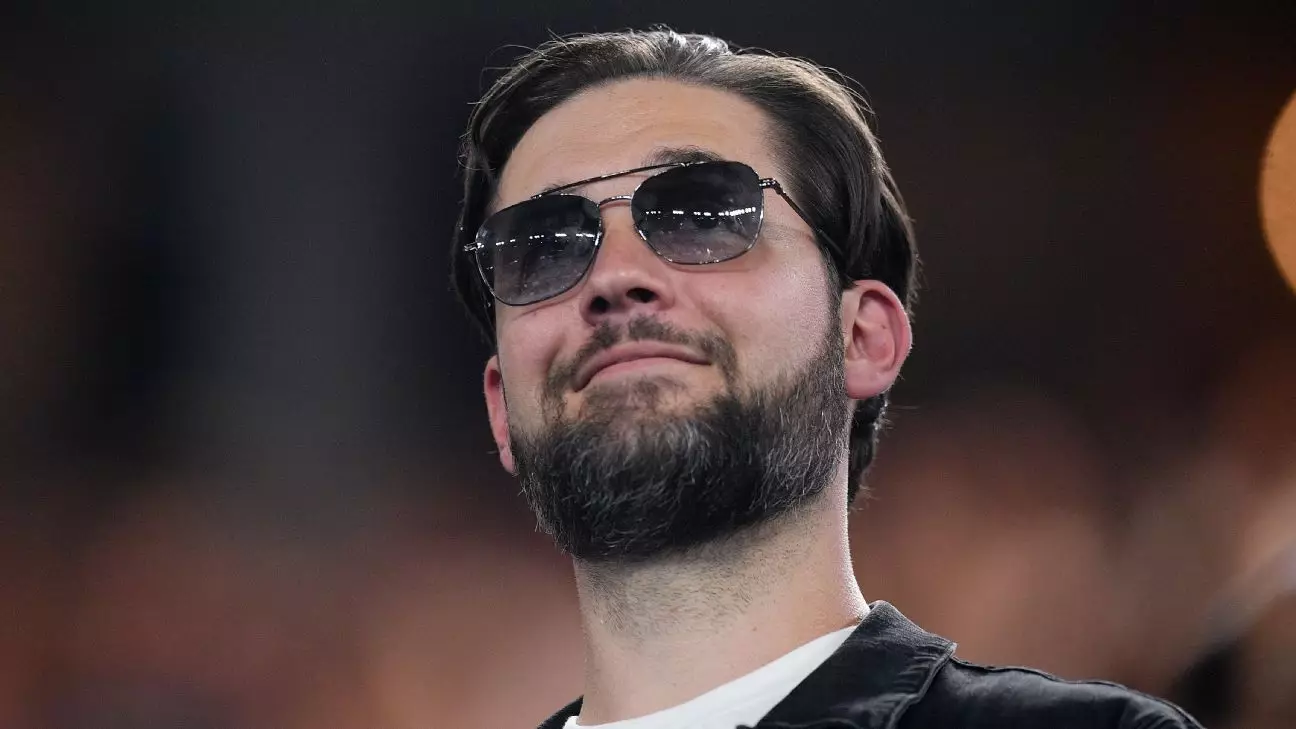The landscape of women’s athletics is ever-evolving, and the University of Virginia’s women’s basketball program has recently captured attention with a monumental donation aimed at elevating its status significantly. Entrepreneur and philanthropist Alexis Ohanian, best known for his ties to the tech world and his marriage to tennis icon Serena Williams, has endowed the program with a substantial multi-year gift that promises to reshape its future. This transformative financial support is particularly noteworthy as it marks the largest single donation in the team’s history, reflecting a growing recognition of the importance of investment in women’s sports.
While the specifics surrounding the dollar amount remain undisclosed, the significance of Ohanian’s gift cannot be understated. According to the university, this investment aims to position the Virginia women’s basketball program as a preeminent destination for female student-athletes. It acknowledges a crucial shift in college athletics—where financial implications and competitive dynamics are increasingly taking center stage. Ohanian has become an active advocate for women’s sports, demonstrating through this gift that he recognizes the unique challenges faced by women’s programs amidst an evolving college sports landscape.
Ohanian’s commitment stems from his experiences, observations, and a desire to drive change. He highlighted the disparities in facilities and investment that were glaringly brought to light during the 2021 NCAA women’s basketball tournament. His discontent regarding the treatment of female athletes during that event showed a personal investment in advocating for equality in sports—a sentiment that resonates deeply within the broader conversation about women’s athletics.
The notion that women’s sports have historically been undervalued is one that Ohanian has voiced eloquently. As a prominent figure in the sports investment narrative, he argued that old paradigms—a perception that women’s sports are not intrinsically tied to excellence or financial returns—have impeded growth. This outdated mindset, which often relegated female athletes to lower priorities in funding and visibility, has begun to dissipate. With the valuation of teams like Angel City FC reaching heights indicative of a burgeoning market, Ohanian’s insights reflect a broader shift toward recognizing the potential returns of investing in women’s athletics.
Virginia women’s basketball coach Amaka Agugua-Hamilton expressed extreme gratitude for Ohanian’s belief in the program. His decision to reconnect with his alma mater and take an active role in its future signifies a pivotal moment for the Cavaliers. The potential for this financial backing to help the program attract top-tier talent cannot be overstated, as it creates opportunities to compete effectively against better-funded rivals.
Virginia’s historical context adds depth to the urgency of revitalizing its women’s basketball program. It was once a powerhouse in women’s collegiate basketball, renowned for producing elite talent and achieving notable success. However, the challenges of the modern era—exacerbated by factors like the transfer portal and shifts in conference alignments—have hindered the team’s progress. With Ohanian’s support, there is renewed hope that the Cavaliers can recapture the elite status they once enjoyed.
Agugua-Hamilton, now in her third season, aims to strengthen the team and instill a culture of excellence—principles that resonate closely with the intent behind Ohanian’s gift. The coach recognizes that success doesn’t occur overnight but unfolds gradually. Given the recent struggles, highlighted by injuries and a lack of NCAA tournament appearances, this new funding has arrived at a perfect time to influence strategic changes and elevate the program’s aspirations.
Ohanian also sees this initiative as a potential call to arms for fellow alumni and businesses to follow suit. His visible enthusiasm for women’s sports, coupled with his desire for his daughters to have inspiring role models, signifies more than personal interest; it reflects a collective movement toward fostering female representation in sports. He articulates that the undeniable passion and motivation of today’s female athletes warrant attention, engagement, and investment.
The need for transformative actions like Ohanian’s gift cannot be overstated, especially as the women’s sports sector continues to evolve. As communities and organizations recognize the merit of equitable investment, the hope is that female athletes will finally receive the support necessary to thrive, thus ensuring the legacy of excellence continues.
In an era where women’s sports demand recognition and investment, Alexis Ohanian’s generous contribution to the Virginia women’s basketball program speaks volumes. It is not merely a gift; it is a beacon of hope and a catalyst for change. As the program embarks on this transformative journey, it serves as a testament to the potential that lies in women’s sports, ensuring they receive the resources, respect, and recognition that have long been overdue. The future indeed looks promising for the Virginia Cavaliers, and it will be exciting to witness how this pivotal investment shapes the landscape of women’s basketball.


Leave a Reply